Table of Contents
Finding the perfect deep-cleansing face wash can feel like navigating a maze of products, labels, and promises. The right choice depends on understanding your skin's unique needs and what the product offers. Discover expert tips on selecting the perfect deep cleansing face wash tailored to your skin type. Learn about key ingredients, best practices, and common mistakes to avoid for healthier, glowing skin. Let's dive into the details of choosing a face wash that works for you.
Understanding Your Skin Type
Your skin type is the foundation of any skincare routine. Picking a face wash tailored to your specific needs can prevent irritation and maximize results.
- Dry Skin: Opt for hydrating cleansers with ingredients like glycerin or hyaluronic acid. Avoid products with alcohol or sulfates.
- Oily Skin: Choose gel-based cleansers with salicylic acid or tea tree oil to control excess sebum.
- Combination Skin: Look for balanced formulas that address both dryness and oiliness without stripping the skin.
- Sensitive Skin: Gentle, fragrance-free cleansers with soothing ingredients like aloe vera or chamomile are ideal.
The Role of Deep Cleansing Face Wash
Deep cleansing face washes go beyond surface cleaning. They remove dirt, oil, and impurities lodged deep within pores.
-
Benefits:
- Prevents breakouts by unclogging pores.
- Reduces dullness and uneven skin texture.
- Enhances absorption of other skincare products.
- Improves Skin Health: Regular deep cleansing reduces buildup and promotes a healthy glow.
What Is Exfoliation To Your Skin?
Exfoliation is defined as the removal of dead skin cells lying above the outer layer of your skin. Due to the lapse of time, dead skin tends to pile up on your skin, causing congestion in pores, dullness, and coarseness. So, exfoliating will remove all those dead skin cells and give you more glowing, smoother skin. It also helps deep clean pores and aids absorption of other skin products. Adding the best deep cleansing face wash to your routine can make all the difference in improving the health of your skin
How is a Deep cleansing face wash different from regular Face washes?
A typical "Face wash" is designed to clean off the surface of your skin from dirt, oil, and makeup gently without stripping too many of those natural oils. The exfoliating face wash does more than cleanse. It has active ingredients and small exfoliating particles. They help remove dead skin cells for a deeper clean.

Key Ingredients to Look For
The ideal ingredients will vary based on your skin type and skincare objectives. For oily or acne-prone skin, opt for a clarifying cleanser containing salicylic acid or retinol. For sensitive or dry skin, select a cleanser infused with hydrating emollients. These components help minimize moisture loss and maintain the skin's hydration.
Certain ingredients stand out for their ability to cleanse effectively:
- Salicylic Acid: Ideal for acne-prone skin as it exfoliates and unclogs pores.
- Glycolic Acid: A gentle exfoliant that promotes cell turnover.
- Tea Tree Oil: Known for its antibacterial properties.
- Activated Charcoal: Draws out impurities and detoxifies the skin.
Natural vs. Chemical-Based Cleansers
Each option has its pros and cons:
-
Natural Cleansers:
- Gentler on the skin.
- Common ingredients include green tea and aloe vera.
-
Chemical-Based Cleansers:
- Target-specific issues like acne or pigmentation.
- Often more potent but can irritate sensitive skin.
Choosing a Face Wash for Acne-Prone Skin
For acne-prone skin, selecting the right face wash is crucial:
- Recommended Ingredients: Benzoyl peroxide and niacinamide.
- Avoid Alcohol-based or highly perfumed products.
Hydration and Moisturization Factors
Even deep cleansers can nourish:
- Moisturizing Ingredients: Ceramides and panthenol help lock in moisture.
- Avoid Overdrying: Check for sulfates or harsh detergents that strip natural oils.
Is the use of chemical exfoliants going to make the skin sensitive?
Yes, the use of chemical exfoliants can make the skin more sensitive, especially if overused or not applied correctly. Ingredients like alpha-hydroxy acids (AHAs) and beta-hydroxy acids (BHAs) work by dissolving dead skin cells, which can sometimes weaken the skin barrier and increase susceptibility to irritation, redness, or sunburn. To minimize sensitivity, it's essential to start with lower concentrations, follow up with a moisturizer, and always use sunscreen during the day to protect the newly exposed skin layers.

How to Revive Skin If It Become Sensitive After Face Wash?
If your skin is sensitive or irritated after face wash, do the following.
- Stop Using the Exfoliant Face Wash: Suspend usage of any exfoliating products.
- Switch to a Gentle Face Wash: Switch to using a mild "Face wash", free of harsh chemicals.
- Moisturize and Soothe: Moisturize, calming inflammation and irritation with soothing ingredients like aloe vera or chamomile.
- Avoid Sun Exposure: Once exfoliated, the skin will also become more sensitive and susceptible to sun damage. Be sure to apply sunscreen before going outdoors.
Best Practices for Using a Deep Cleansing Face Wash
- Use lukewarm water to open pores.
- Cleanse twice daily, unless specified otherwise.
- Double cleanse for makeup removal.
Common Mistakes to Avoid
Avoid these pitfalls:
- Over-cleansing can damage the skin barrier.
- Ignoring your skin type may worsen existing issues.
Conclusion
Deep cleansing face wash is a basic product to maintain healthy, glowing skin. Knowing your skin type can help you choose the best exfoliant, either mechanical or chemical. Be gentle when exfoliating, hydrate your skin, and always protect it from the sun. It will keep your perfect complexion.
Follow us on:- Facebook, Instagram, YouTube
Read More:- Deep Cleansing as part of Korean Skincare Routine




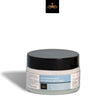
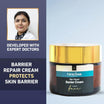
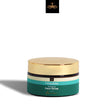

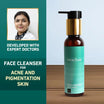
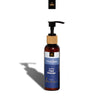

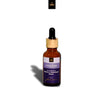
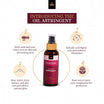



Leave a comment
This site is protected by hCaptcha and the hCaptcha Privacy Policy and Terms of Service apply.